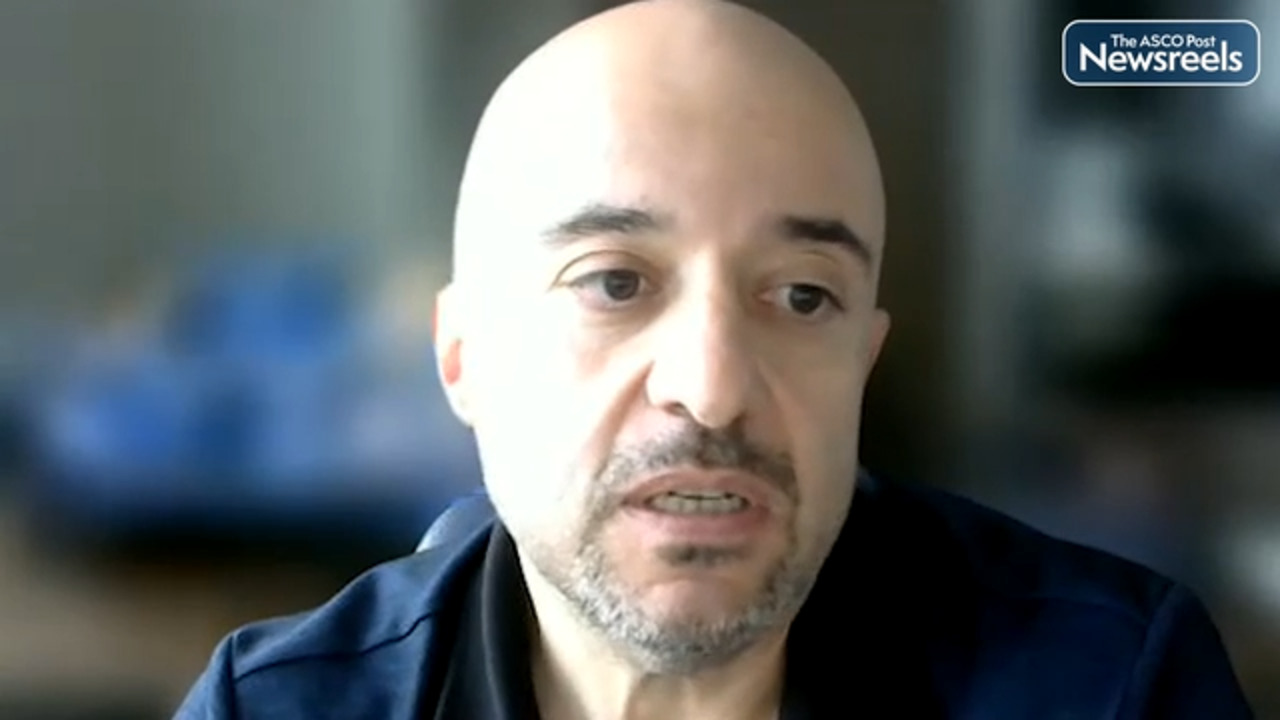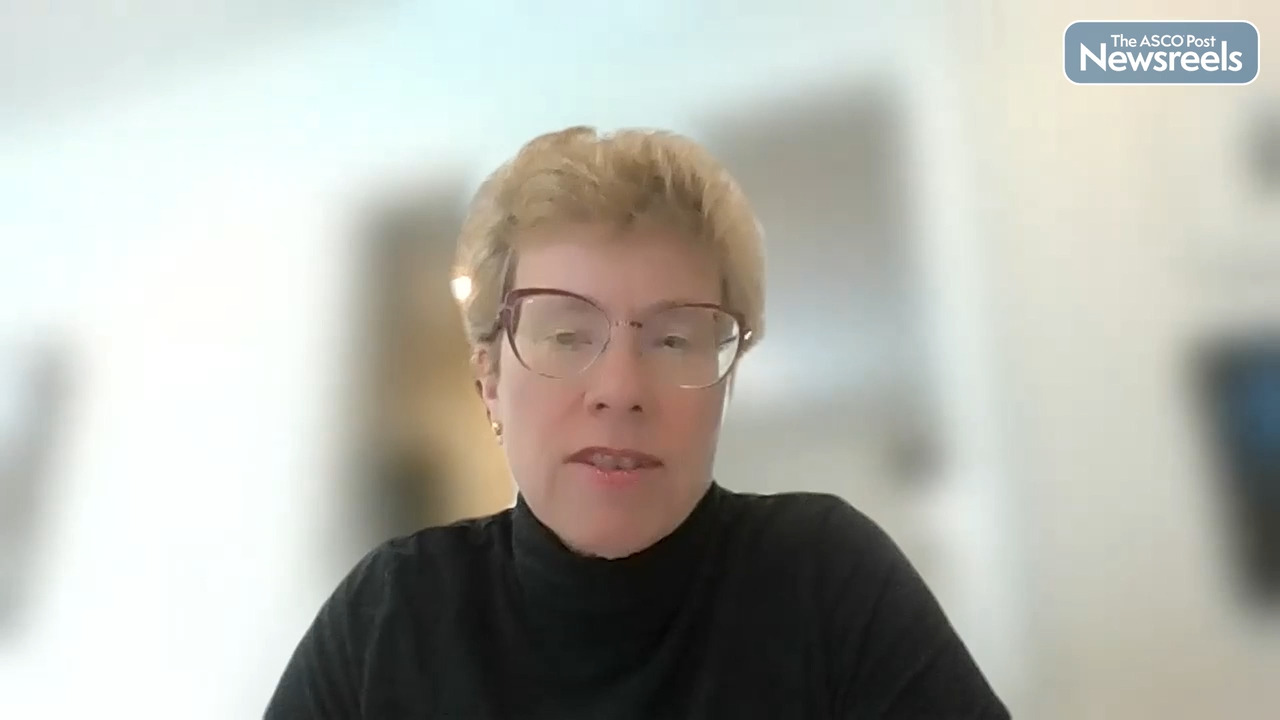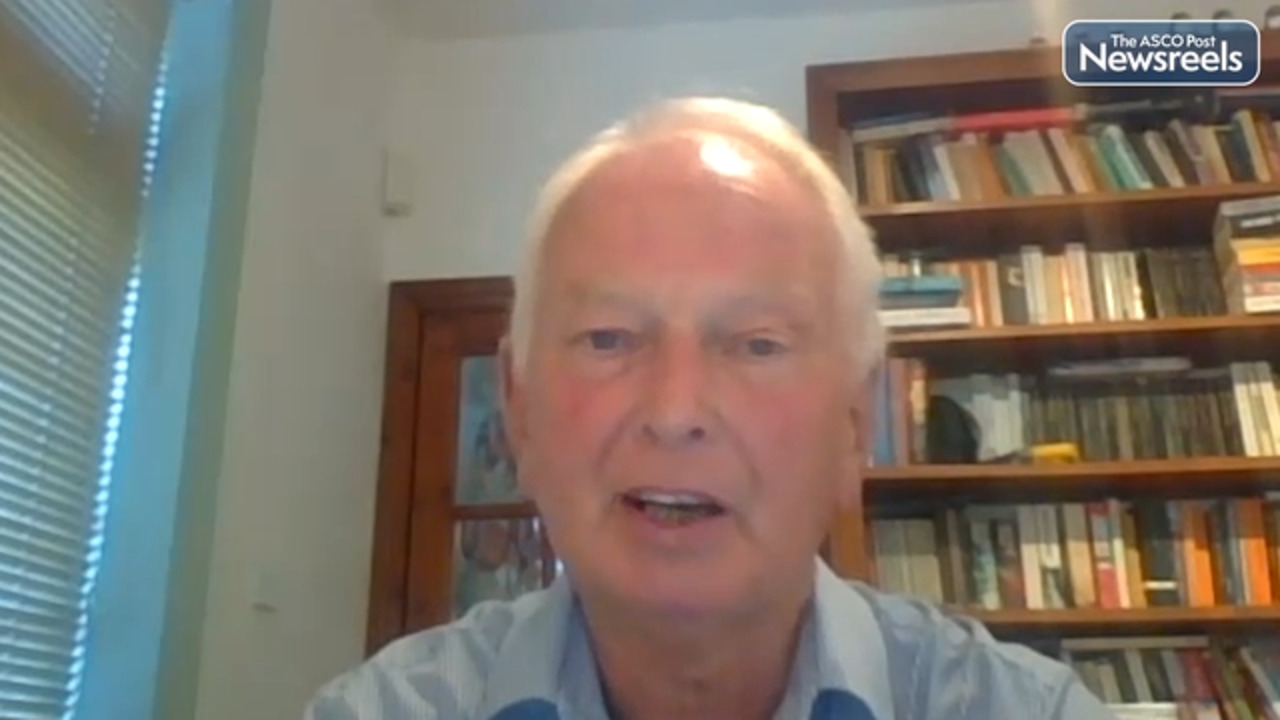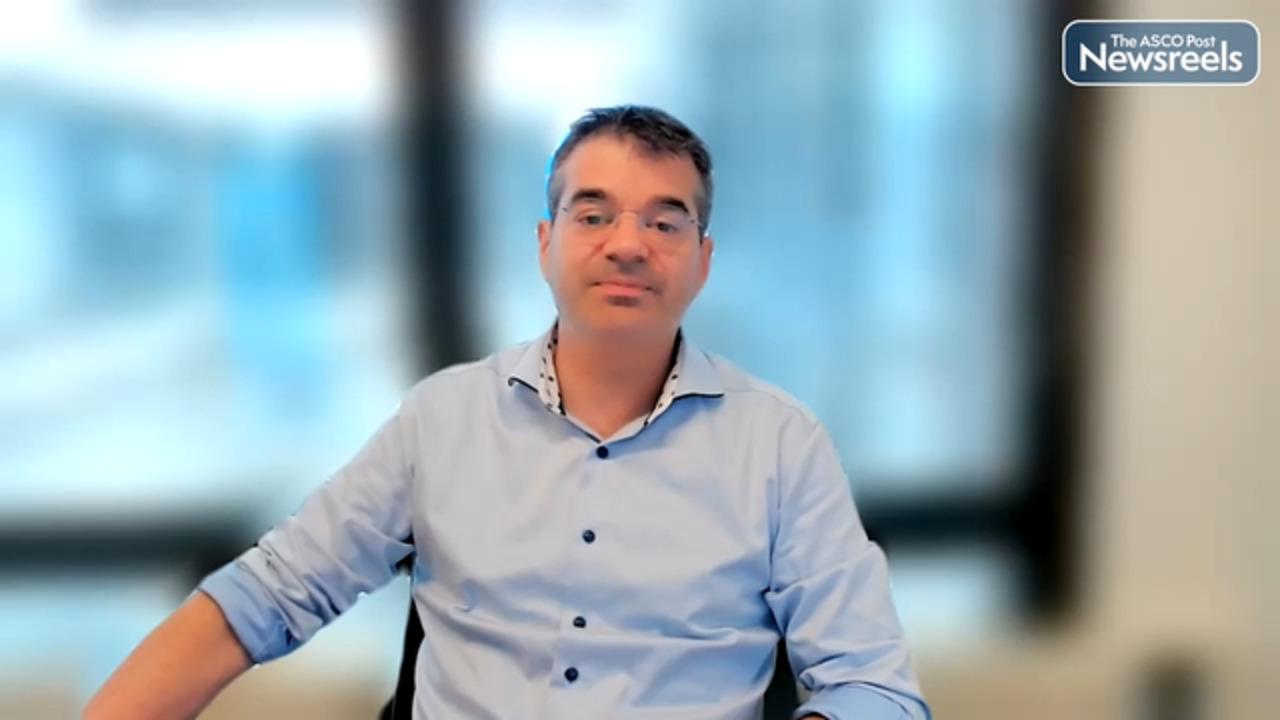Paolo Corradini, MD, on PMBCL and DLBCL: Comparing Outcomes With Axicabtagene Ciloleucel
EHA Hybrid Congress 2023
Paolo Corradini, MD, of Italy’s Istituto Nazionale Dei Tumori, discusses findings from the CART-SIE Real Life Italian Study, which compared treatment outcomes for patients with relapsed or refractory primary mediastinal B-cell lymphoma (PMBCL) and diffuse large B-cell lymphoma (DLBCL), all of whom received axicabtagene ciloleucel. The trial showed that those with PMBCL had superior survival outcomes than did those with DLBCL.
The ASCO Post Staff
Rami S. Komrokji, MD, of Moffitt Cancer Center, discusses an assessment of new classifications for myeloid neoplasms and the ongoing efforts to harmonize these classifications, so researchers can better understand risk, outcomes, and survival among patients with genetically distinct types of the disease.
The ASCO Post Staff
Jennifer R. Brown, MD, PhD, of Dana-Farber Cancer Institute, discusses phase I/II findings from the Bruin study of resistance to pirtobrutinib in patients with covalent BTK inhibitor–pretreated chronic lymphocytic leukemia (CLL). The aim of the study was to explore the genomic evolution of resistance to this agent.
The ASCO Post Staff
Nigel Russell, MD, of Guy’s and St. Thomas’ NHS Foundation Trust, discusses the latest results from the AML19 trial, which showed the chemotherapy regimen FLAG-Ida (fludarabine, high-dose cytarabine, idarubicin, and granulocyte-colony stimulating factor), when combined with gemtuzumab ozogamicin, reduced levels of measurable residual disease and improved overall survival in patients with NPM1-mutated acute myeloid leukemia after induction therapy.
Arnon Kater, MD, PhD, of the University of Amsterdam Medical Centers, discusses results from the phase II VISION/HO141 trial of venetoclax plus ibrutinib in patients with relapsed or refractory chronic lymphocytic leukemia (CLL). For patients with undetectable measurable residual disease (MRD) after 15 cycles of treatment, treatment cessation with MRD-guided reinitiation was found to be a feasible approach.
The ASCO Post Staff
Matthew J. Frank, MD, PhD, of Stanford University School of Medicine, discusses new findings showing that CD22 chimeric antigen receptor (CAR) T-cell therapy is an effective and safe salvage therapy for patients with CAR19-refractory large B-cell lymphoma. A multicenter phase II clinical trial is planned for 2023 (Abstract S230).





